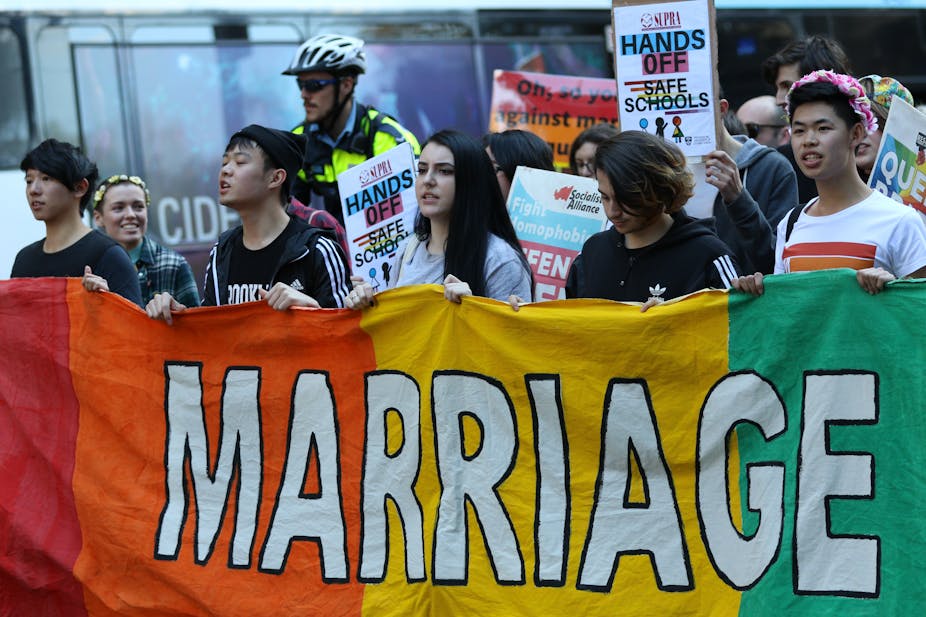More than two-thirds of voters oppose the government’s decision to give public funding to the yes and no campaigns in a plebiscite on same-sex marriage, according to an Essential poll published on Tuesday.
Only 22% approved the government allocating A$7.5 million to each side; 68% disapproved.
In the poll 60% said they would vote yes to the question “Should the law be changed to allow same-sex couples to marry?” while 30% said they would vote no.
But many people were troubled about the possible nature of the campaign. Asked how concerned they were that a plebiscite may result in hate speech and abuse of gay and lesbian communities, 48% were concerned, while 39% were not.
The poll also found a majority believed that if the legislation to set up the plebiscite failed in the Senate, a parliamentary vote on the substantive issue should be held: 53% said in these circumstances there should be a vote while 29% believed there should not.
This result reinforces pressure on Malcolm Turnbull to allow the issue to be voted on in parliament if, as seems probable, the legislation for a plebiscite is killed. But he is considered very unlikely to do that, because the conservatives among his MPs would strongly resist such a course.
The poll comes as Opposition Leader Bill Shorten, building his case for voting against the plebiscite legislation, had talks in Melbourne with leaders in the LGBTI community. He said they had explained “their deep concerns, their persuasive concerns” about a divisive plebiscite.
Shorten has indicated he expects to recommend to caucus that the plebiscite legislation be opposed but a final decision will not be taken until the resumption of parliament, which is on a three-week break.
Asked why, if he had heard about so much emotional torment he was dragging out Labor’s decision, he said “we are actually interested in the views of the community”.

